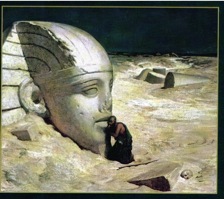The idea of stacking our elected presidents against their predecessors in the effort to weigh better or worse is the same exercise in futility as pitting a modern NBA team against a basketball squad from fifty years ago. There can be no competition because the standards by which judgment is passed depend entirely upon the culture of that time. Modern basketball players are obviously bigger, stronger, and faster with a far more keen understanding of human physiology and much more rigorous work-outs. By the same token, a modern president must deal with a different set of complexities than probably ever dreamed of by presidents of the past.
However, a careful study of history does offer clues by which we can attempt an evaluation of our sitting president at any given time. Rather than pitting one president against another, we can weigh the presidents of the past and present versus our understanding of what is good for the country, which is ostensibly a subjective perspective. One might reasonably consider Thomas Jefferson's purchase of the Louisiana Territory to go against the anti-imperial foundations of America while another would say that his actions plainly determined a path to greatness for the nation. Thus, we must pay heed to the people's opinion at that time, those who constitute what our nation is by its very definition in the Constitution.
By this measure, Jefferson's actions could be judged as being utterly bad for America at that time. His negotiations for the purchase were widely declared hypocritical and even un-Constitutional. A small northern-states succession movement began with Aaron Burr being offered the executive role should it come to fruition. In following his own judgment and going forward with the purchase, Jefferson brought a young country to brink of civil war, most likely only avoided by the influence of Jefferson's rival, Alexander Hamilton. Burr later shot and killed Hamilton as a result of the strife of this period.
In seeking to weigh President Bush by the same measure of what the people believe, it must obviously be stated that there has been no realistic threat of state rebellions against his policies. However, those same policies have resulted in bitter disputes both within America's borders and around the entire world. President Bush has the singular place in history as being the most widely protested against figure ever. Halfway through his second term, his political party suffered a humiliating defeat in losing control of both Houses of Congress. Public opinions polls have hovered in the low thirty percentile range in terms of his approval. Indeed, his unpopularity is such that by merely being seen as supporting him has cost more than one domestic and international politician either their position or status among their electorate.
It is difficult to find in American history a president more openly distrusted or maligned both at home and abroad. The new age of communication and information exchange obviously plays a heavy role in the dissemination of opinion, yet people of any age have only had the information sources available upon which to form an opinion. It is doubtful that even a vocal secessionist movement could have sprang to the nascent levels it did in Jefferson's time without the support of public opinion, formulated on available information.
Thus, we can conclude that President Bush is, if not the worst president ever, at least the worst president for this country at this time. In this regard, his statements as to allowing history to be his final judge are accurate as the fall-out of his decisions will have echo effects for years to come. Yet, as a citizenry, the responsibility for our government still lies with us alone. It is a government of us, for us, and by us. This time is ours alone to judge as we must pay the immediate price for any mistake. The American people do not wait for history. We as a nation have the imperative to judge now and it is now quite plain that President Bush has utterly failed at the job he was chosen to do by the people.
11/19/2006
Subscribe to:
Post Comments (Atom)


No comments:
Post a Comment